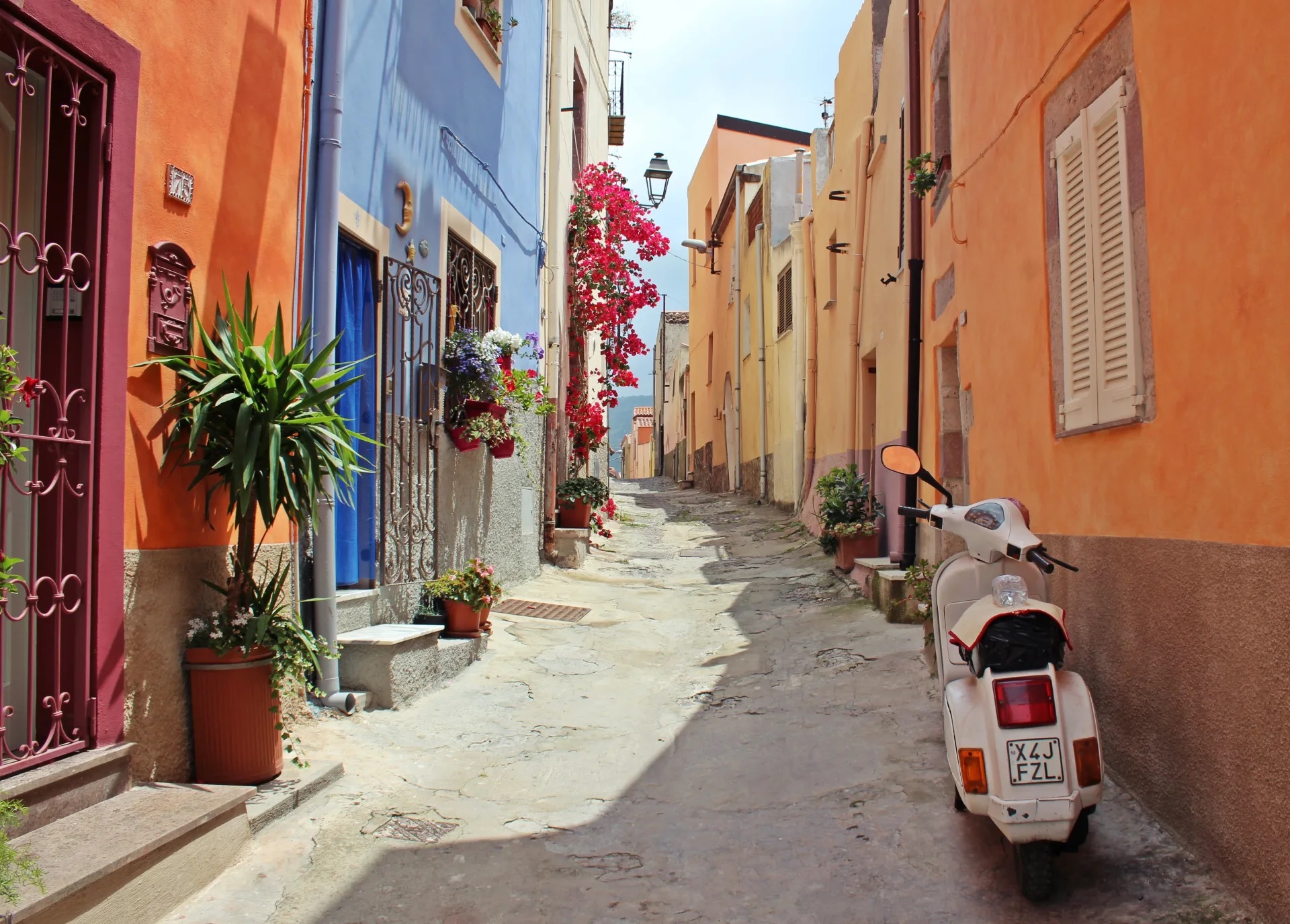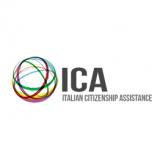
 Italian Citizenship Assistance
Italian Citizenship Assistance
ICA: Follow the Italian dream and relocate to Italy. Citizenship by residency
- WTI Magazine #153 Jul 24, 2022
-

 Italian Citizenship Assistance
Italian Citizenship Assistance
Italy has always been an inspirational destination which attracts millions of tourists each year who come from every corner of the world to discover the country’s picturesque landscapes, explore its cities and museums, and taste the immense variety of regional dishes and wines. In the past few years Italy has also become one of the most attractive destinations within the EU for foreign retirees who wish to spend their golden years abroad.
But what are the paths you can pursue in order to relocate to Italy and ultimately obtain citizenship? This article will outline the ways in which individuals who are not of Italian descent and are not married to an Italian citizen can obtain residency in Italy and ultimately apply for Italian citizenship.
The most important prerequisite to apply for Italian citizenship by residency is having spent a number of years in Italy, therefore, if you are a non-EU citizen the first step to take is to enter Italy on a visa which will allow you to spend the number of years needed to apply for Italian citizenship by residency. On the other hand, EU citizens do not need a visa to enter Italy but if they wish to apply for Italian citizenship by residency they will need to register as residents in a municipality upon arriving in Italy.
There are several types of visas which allow entry to Italy. Among them is the Elective Residence Visa (often referred to as the Italian Retirement Visa), which is designed for individuals with high self-sustaining incomes. This visa allows its holders to stay in Italy for 1 year, and it can be renewed provided that the applicant meets the requirements each year. Another visa which allows entry to Italy is the Investor Visa (or Golden Visa). This visa was issued in 2016 with the objective of allowing non-EU investors to stay in Italy for a 2-year period on the condition that they invest in specific areas of the Italian economy. If you would like to learn more about the Elective Residence Visa and the Investor Visa please read our previous article. There are also other types of visas you can apply for such as the study visa, the work visa and the self-employment visa.
What are the requirements you must meet in order to apply for citizenship by residency?
If you are an EU citizen you can apply for Italian citizenship after 4 years of legal residency in Italy; on the other hand, if you are a non-EU citizen you can apply after having resided in Italy for at least 10 years. However, some categories of individuals can apply after 3 years of legal residency; this applies to foreigners whose parents or grandparents were Italian by birth, and to foreigners who were born in Italy and did not apply for Italian citizenship when they reached the age of 18. Finally, stateless people and individuals who were adopted by an Italian citizen after they reached the age of 18 can apply for Italian citizenship by residency after 5 years of legal residency in Italy.
If you are a non-EU citizen you must hold a residency permit (“permesso di soggiorno”) for the entire duration of the residency period in Italy. Your name must also be listed in the registry office (“anagrafe”) in the town/s where you have resided. If you have resided in a number of different municipalities, you must prove that your name was listed in each municipality, and that you resided in Italy continuously throughout the number of years which are necessary to file an application. Finally, B1 level in Italian is required unless you fall into one of the following categories: 1) you already have certified knowledge of Italian (this needs to be certified by one of the following institutions: the University for foreigners of Siena, the University for foreigners of Perugia, Roma Tre University and the Dante Alighieri Society); 2) you hold a language degree in Italian or you attended school in Italy; 3) you hold a “carta di soggiorno UE per soggiornanti di lungo periodo” (permit of stay for individuals residing in Italy for prolonged periods of time), which was issued after 2011.
The language requirement was introduced by the Salvini Decree, which was converted into law on December 1, 2018 and which established that the acquisition of Italian citizenship both by marriage and residency would require passing a B1 language test, which is lower intermediate level. Aside from the language requirement, the Decree also set the maximum processing time for applications for citizenship by marriage and residency for 48 months. However, this was reduced to 24 months (to a maximum of 36 months) by law n.173/2020 on December 18, 2020. For more information about the language requirement please click here.
In order to apply for citizenship by residency you also need to prove that your yearly income has not been lower than € 8.263,31 for the past 3 years. In particular, you will need to provide your Modello CU, Modello Unico, or Modello 730 depending on your profession; these documents summarize all your earnings from employment or self-employment (if you have partita IVA or VAT number). If you are married and your spouse is dependent on you financially, your yearly income must not have been lower than €11.362,05, and an additional € 516.46 is required for every dependent child. The application must be submitted via the official website of the Italian Ministry of the Interior and once it has been approved you will need to provide the local prefecture with original copies of the following: 1) a certified, original copy of your birth certificate which has been duly translated and legalized; 2) lean criminal records issued by the country of origin and any other countries in which you have resided since the age of 14, which have been duly translated and legalized. If you are a US citizen you will need to provide clean criminal background checks issued by all the US states where you have resided since the age of 14, and by the FBI; 3) proof of payment for the application (€250); the payment needs to be made to bank account n.809020 pertaining to the Italian Ministry of the Interior, the reason for payment must state: “cittadinanza – contributo di cui all’art. 1 co. 12, legge 15 luglio 2009 n. 94”, and the receipt needs to be attached to the rest of the documents used to file the application; 4) proof of income and language certification.
It can take up to 24 months to receive an outcome. The processing time may also be extended to 36 months. Please note that you must reside in Italy while your application is being processed.
If your claim to citizenship is successful, a decree of citizenship will be sent to the town hall of your town of residency, and the citizenship ceremony will take place within 6 months from that date. During the ceremony your will need to take an oath and swear allegiance to the Italian Republic. Any minor children who are living with you at the time of the oath will automatically become Italian citizens. It is worth pointing out that in order for an application to be successful you must submit all the required paperwork, and all documents need to be legalized for use in Italy. Applications that are incomplete or that include criminal records certificates that have expired will not be processed.
***
What if you meet the requirements to apply for Italian citizenship by descent or you are married to an Italian citizen?
If you qualify for Italian citizenship by descent , the process of relocating to Italy will be slightly easier than the one described above as you can apply for Italian citizenship in a municipality in Italy and obtain a residency permit which is valid for the entire duration of the application process; this generally lasts a couple of months depending on the municipality to which you apply. On the other hand, spouses of Italian citizens can apply for Italian citizenship through marriage and obtain an Italian passport, provided that they meet the requirements needed to apply, however, they can also obtain residency in Italy by virtue of being married to an Italian citizen.
In conclusion, this article has sought to outline the paths that can be pursued in order to move to Italy and acquire Italian citizenship by residency be it to work, study, retire, or simply to enjoy the country’s culture and lifestyle. If you would like more information about the potential paths you can pursue in order to follow the Italian dream and relocate to Italy, do not hesitate to contact Italian Citizenship Assistance at [email protected] or at +1- 323 – 892 – 0861.